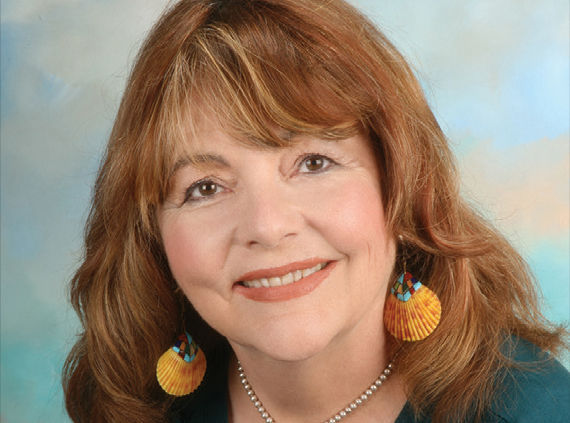I believe now is the time for the Grand County Council to do everything in its power to change the name of Negro Bill Canyon to Grandstaff Canyon.
I was moved to do this following the horrendous actions of a white supremacist who allegedly murdered nine people at an historic African-American church in Charleston, South Carolina. And I am not alone. Across our nation, people are reconsidering the appropriateness of flying the Confederate flag at governmental facilities. Why? Because many people view it as a symbol of a society that was willing to sacrifice 750,000 lives so that they could maintain their right to enslave the African-American people – not a symbol many feel should be honored.
Words are also symbols and they are powerful. According to Yehuda Berg, “Words are singularly the most powerful force available to humanity. We can choose to use this force constructively with words of encouragement, or destructively using words of despair. Words have energy and power with the ability to help, to heal, to harm, and to humiliate.”
The Spaniards and the Portuguese slave traders first created the word Negro as a reference to a human being. It was used to help remove the humanity of the African people. They were no longer Africans; they were merely a color that did not have a country or a home before becoming slaves. The word was key to enabling slavery to exist, because it helped a portion of society to mask part of their humanity, so they could justify the right to own another human. For many people, the word symbolizes an appalling time in our history when the African people were stripped of their humanity and forced into slavery.
Such a symbol creates negative, uncomfortable feelings for a large number of people who read and hear it. For some, it does not have a negative connotation. I’m sure many reading this editorial do not find it offensive. Jeanetta Williams, president of the NAACP Tri-State Conference, said the word is not offensive. However, other NAACP leaders disagree with her. Frank Mesiah, the president of the NAACP’s Buffalo, New York, branch, said the use of the word is evidence that racism is alive and well.
Further evidence that the term is considered offensive is: In November 2014, the Army issued a formal apology for using “Negro” in Army policy forms and eliminated the term from Army regulation materials. At the Racism in Education Conference of the American Federation of Teachers, the delegates unanimously endorsed a resolution, which called on all educators, persons and organizations to abandon the “slavery-imposed name” Negro for the terms “African-American ” or “Afro-American.” More significantly, in terms of mass impact, the New York Amsterdam News, one of the largest Afro-American newspapers, announced that it would no longer use the word “Negro.”
When my family from Chicago was visiting and they saw the sign for Negro Bill Canyon, they asked, “Are the people living in Moab racist?” Many people who interface with the public in our bike shops, river companies, motels and other such establishments often deal with uncomfortable conversations where they have to explain and justify the name of the canyon. The name does not reflect well on the people of our Grand County.
Some feel the name should remain to preserve history. Being a history enthusiast myself, I respect the people who want to preserve history. I, too, want to preserve history. A sign simply saying the name of the canyon is “Negro Bill” does not preserve history. A person reading the sign could assume Negro Bill was an outlaw, a rancher, farmer, cavalry member, or simply a name of a geographic formation. I believe that renaming it after his last name, Grandstaff, with a plaque at the canyon’s entrance telling Grandstaff’s and the canyon’s history, will preserve history in a far better and respectful manner. There is not a historical record of William Grandstaff referring to himself as Nigger or Negro Bill. All official records Mr. Grandstaff signed, he signed as William Grandstaff. The Glenwood Springs, Colorado, newspaper referred to him as William Grandstaff. He was not referred to as Bill.
Changing names of geographic locations is not uncommon. The U.S. Board on Geographic Names has honored requests from Georgia, New Mexico, South Dakota, Colorado, Oregon and California to drop the moniker “Negro” from several public places. I believe it is time we as a county file a formal request to the Board on Geographic Names to change the name of Negro Bill Canyon to Grandstaff Canyon. This action will not cost the county any money, it will not be time consuming, and if it is done today, the issue will not reappear at a later date, as it will if we do not take action to change the name.
Mary McGann is a member of the Grand County Council.



